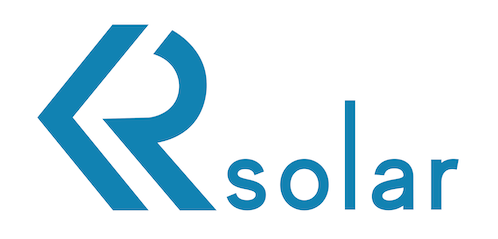Federal Solar Tax Credit in 2024: Learn How to Save Money
Electricity bills have hit an all-time high in 2022, pushing homeowners to look for fossil fuel alternatives. Keeping the economy and the environment in mind, the government is using solar to promote clean energy, which is quite evident from the recent solar tax credit announcement.
Taxpayers have enjoyed tax incentives and credits for using solar energy for several years, and the 2022 update sweetened the deal even more. From 2010 until today, the cost of installing solar panels for home has gone down by 64%, thanks to technological innovations and the growing popularity of PV panels. So of course, this is a great time to go solar and reduce taxes legally.
What is the 2024 Solar Tax Credit?
The 2022 solar tax credit offers you a credit of 30% of your total tax liability. Basically, the federal government is giving you an option to reduce your tax liability by 30% when you install energy panels for home.
For solar systems installed between 2020 to 2021, you could get a 26% tax credit. Now with the Inflation Reduction Act of August 2022, it has been bumped up to 30%, applicable for all solar panels installed during the 10-year period of 2022 to 2032. The act also states that for solar systems installed in 2033 and 2034, the tax credits will be reduced to 26% and 24%, respectively. This credit is subjected to further renewal by the government, otherwise, it will stop in 2035.
For instance, if your total tax liability in the current financial year is $10,000 and you have spent $20,000 this year to upgrade your home with a solar PV system, you can get a tax credit of 30% or $6000, bringing down your tax liability to $4000.
Who Qualifies for the 2022 Solar Tax Credit?
All American citizens are eligible to get the solar tax credit, provided that you have a tax liability and meet the eligibility rules.
Here’s a quick checklist to help you understand who qualifies for the 2024 Clean Energy Credit of 30%:
- You have purchased the solar panels with an upfront payment or a loan, and you own the system.
- The installation period is from 2022 to 2032.
- You installed solar panels in your primary or secondary residential property, and not in a commercial property.
- Your residential property is located within the United States.
- The solar panel system is brand new.
- Your income is taxable.
What Are the Expenses Included in the Tax Credit?
The tax credit is quite expansive, as it includes most expenses you incur for installing home solar panels. However, if you finance your solar system for home and you’re paying interest to the developer, the interest is not eligible for the credit.
The following are considered qualified expenses:
- Sales tax paid
- Equipment charges, including the panels, racking, wires, etc.
- Labor cost and other related expenses
- Inspection cost
- Installation of solar heaters, geothermal heat pumps, small wind turbines, etc.
Can I Get State Solar Incentives Along with Federal Solar Tax Credit?
In most cases, your federal solar credit doesn’t get reduced if you take benefits of state incentives. However, it is the state’s discretion whether they want to reduce your solar incentives after you get the federal tax credit. Make sure to check with your state tax agency before filing taxes.
FAQ
Can I claim a tax credit on leased solar panels?
You can claim a tax credit only when you own the solar panels. In a lease arrangement, the developer or the solar company is the owner of the system, so they can take benefits of the tax credit and incentives. You’re not eligible for a solar tax credit.
Can I claim solar tax credit for a rental property I own?
No, you cannot claim solar tax credit on a property that you solely use for generating rental income. But if you reside in the property for some parts of the year and put it on rent when you’re not there, then you’re eligible for the tax credit, but only a certain percentage of it.
Can I claim a tax credit if I financed my solar panels instead of an upfront payment?
When you finance energy panels for home instead of paying in a lump sum, you are still the owner of the system. As long as you bought the system and did not take it on a lease, you are eligible to claim a tax credit. But extra expenses such as interest payments are excluded.
Is it necessary to stay connected with the local grid to qualify for tax credit?
There is no hard and fast rule that forces you to remain connected to the local utility grid to qualify for tax credit. Your solar system for home should be generating electricity to power your residential property—that’s all. So the credit is applicable for both on-grid and off-grid solar panels.
Is solar tax credit refundable?
No, the solar tax credit is not refundable. In case your tax liability for the year is lesser than your qualified solar tax credit amount, you cannot get any refund. But at the same time, you don’t lose out on your money. You are allowed to adjust the difference while filing taxes for the next year. You can carry forward this tax credit for up to 5 years. So even when you don’t get a refund, you can enjoy prolonged tax credits.
How do I claim my solar tax credit?
Tax planning is a crucial part of your finances, so it’s better to consult with a professional tax expert before filing. When you’re sure that you’re eligible for the federal solar tax credit, fill up Form 5695 while filing your returns for the financial year.
If you’re planning to install solar panels for home, KR Solar is here to help you out. From the initial consultation to the final installation, we make every step seamless, so you can sit back and enjoy clean energy and all the financial benefits it brings along.

